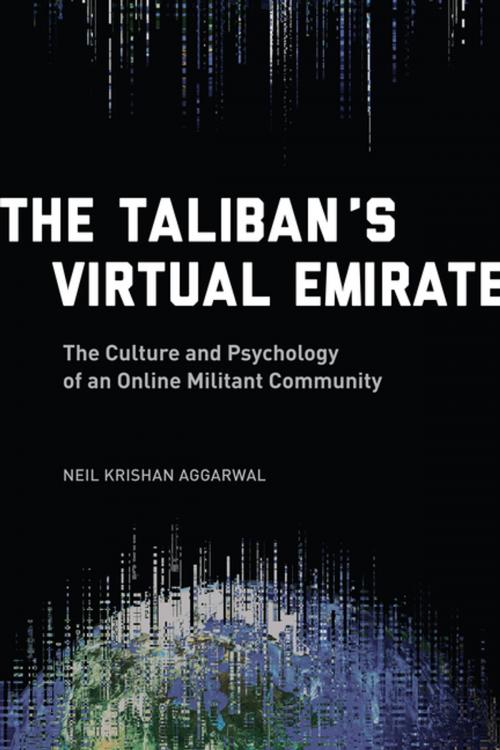The Taliban's Virtual Emirate
The Culture and Psychology of an Online Militant Community
Nonfiction, Religion & Spirituality, Other Practices, Fundamentalism, Health & Well Being, Psychology, Social & Cultural Studies, Political Science| Author: | Neil Krishan Aggarwal, , Ph.D. | ISBN: | 9780231541626 |
| Publisher: | Columbia University Press | Publication: | May 24, 2016 |
| Imprint: | Columbia University Press | Language: | English |
| Author: | Neil Krishan Aggarwal, , Ph.D. |
| ISBN: | 9780231541626 |
| Publisher: | Columbia University Press |
| Publication: | May 24, 2016 |
| Imprint: | Columbia University Press |
| Language: | English |
Applying cutting-edge psychiatric theories to an analysis of online Taliban literature in four languages, Neil Krishan Aggarwal constructs a game-changing narrative of the organization's broad appeal and worldview.
Aggarwal, a cultural psychiatrist, focuses on the Taliban's creation of culture, evoking religion in Arabic and English writings, nationalism in Dari sources, and regionalism in Urdu texts. The group also promotes a specific form of argumentation, citing religious scriptures in Arabic works, canonical poets in Dari and Urdu writings, and scholars and journalists in English publications. Aggarwal shows how the Taliban categorize all Muslims as members and all non-Muslims as outsiders; how they convince Muslims of the need for violence; and how they apply the insider/outsider dichotomy to foreign policy. By understanding these themes, Aggarwal argues, we can craft better countermessaging strategies.
Applying cutting-edge psychiatric theories to an analysis of online Taliban literature in four languages, Neil Krishan Aggarwal constructs a game-changing narrative of the organization's broad appeal and worldview.
Aggarwal, a cultural psychiatrist, focuses on the Taliban's creation of culture, evoking religion in Arabic and English writings, nationalism in Dari sources, and regionalism in Urdu texts. The group also promotes a specific form of argumentation, citing religious scriptures in Arabic works, canonical poets in Dari and Urdu writings, and scholars and journalists in English publications. Aggarwal shows how the Taliban categorize all Muslims as members and all non-Muslims as outsiders; how they convince Muslims of the need for violence; and how they apply the insider/outsider dichotomy to foreign policy. By understanding these themes, Aggarwal argues, we can craft better countermessaging strategies.















